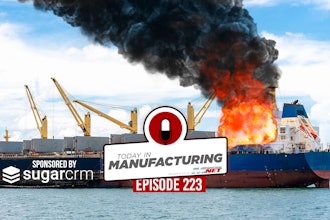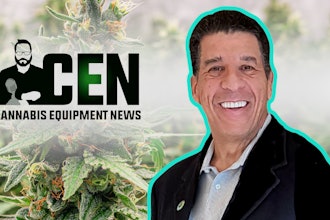Editor's Note: Download the audio version below and click here to subscribe to our newsletter.
In 2016, Carl Joachim was one of three individuals who set out to create a new digital printing business based in the Madison, WI, area. At the time, digital printing offered an opportunity to disrupt the printing industry, particularly for small- and medium-sized runs, so Joachim and fellow co-founders Jack Knott, CEO, and Virag Patel, COO, founded ePac Flexible Packaging.
Business was good, and the following year, ePac expanded with a second plant in Boulder, CO, where the company walked into a mature cannabis market. Joachim set out to understand the packaging requirements for the upstart marketplace and started tailoring products to the market. ePac’s position in the market has grown year-over-year as the company has become one of the largest players in the cannabis packaging market.
Cannabis packaging is unique. It requires resealable, child-resistant packaging, and ePac’s team did a lot of research to ensure it offered flexible packaging with the proper materials and zipper structure to meet all the necessary certifications and state requirements.
Digital printing has disrupted the flexible packaging market, allowing packaging projects to be turned around in as little as 10 business days. It’s particularly well-suited for cannabis because it can print jobs for multiple SKUs simultaneously. The process also creates less waste as companies can order to demand. Every year, cannabis has many new players entering the market, and each needs to be able to change on the fly and get new packaging in-house quickly; digital printing can make that happen.
ePac is a full-service packaging supplier that plans to add graphic design services by the end of the year. Joachim says the new division will help small companies design more professional-looking packaging and get to market faster.
The printing house is in a competitive position because it not only works well with the mom-and-pop shops but can also do the heavy lifting for large operations. The heart of this capability is ePacONE which links each of the company’s 60 HP Indigo Digital Presses across 24 global processing centers in a single network. So, when a large order for 5 million packages comes in, the presses work in tandem to quickly turn around the order. Still, the minimum order remains $2,500, so the small players have access to the same presses.
Joachim says digital packaging seems to “check all of the boxes” for cannabis operators, especially because it can change on the fly. The active legislation around cannabis means that packaging and labeling rules are constantly changing throughout the year. Despite this constant state of flux, operators can minimize waste by ordering to demand and adjusting as needed.
According to Joachim, it will be much easier to do business once cannabis is federally legal. He says legalization will help the market grow and eliminate the negative “drug” stigma that remains.
In 2016, three people set out to disrupt the flexible packaging industry. In just three years, the company has grown to 24 plants with some 800 employees and more than 5,000 customers, and the company’s willingness to work with cannabis operators played a significant role in its expansion.
Please make sure to like, subscribe and share the podcast. You could also help us out by giving the podcast a positive review. Finally, to email the podcast or suggest a potential guest, you can reach David Mantey at David @cannabisequipmentnews.com.






















